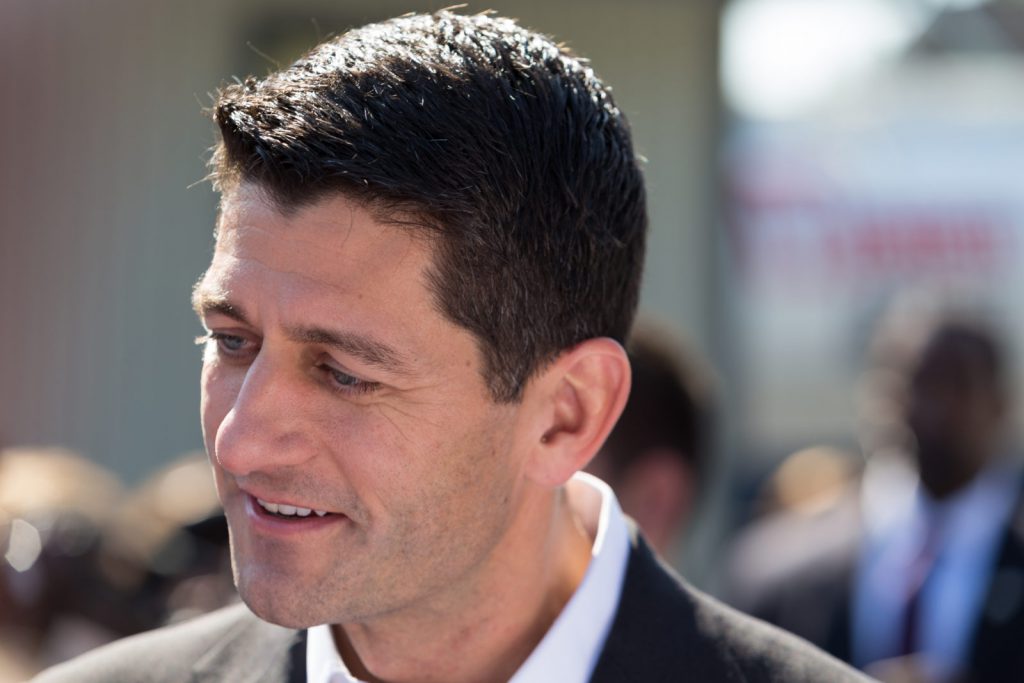
Published April 13, 2018
I’ve always felt a kinship with Paul Ryan. Maybe it’s the fact that we are both Jack Kemp acolytes. Maybe I have a soft spot for upright family men who are attracted to public policy by the desire to do good. Maybe I love conservative wonks. But Paul Ryan’s fate over the past several years is as good an indication as any of how far our politics have fallen.
Ryan’s departure will not be mourned by Democrats or Trump loyalists. The Democrats caricatured Ryan as the goon throwing granny in her wheelchair off a cliff. They actually ran TV ads with a Ryan lookalike. Barack Obama singled him out for scorn at a White House meeting, claiming later that he was unaware Ryan was in the front row.
You might suppose that that would be enough to make Ryan a conservative hero, but life is often unjust, and when Trump came along, Ryan found himself a sudden symbol of the reviled “Republican establishment.” Though the anti-Ryan vitriol faded after Steve Bannon’s defenestration, he continued to be viewed with suspicion by the talk-radio crowd and other arms of Trump Inc.
This was his reward for attempting to drag his party, and the country, toward a grown-up reckoning with our debt. Nearly singlehandedly, Paul Ryan had managed to put tackling entitlements on the national agenda. As chairman of the budget committee, he convinced his colleagues to endorse modest entitlement reform. As he kept trying to explain, making incremental reforms now—with no changes for current beneficiaries or those in their 50s—can prevent drastic shortfalls and extreme benefit cuts that will be necessary in just 16 years when Social Security is depleted. The outlook is even worse for Medicare and Medicaid.
But Donald Trump arrived on scene with the supposedly blinding insight that changes to entitlements are unpopular. Well, no kidding. He promised never to touch Medicare and Social Security—not even to ensure their future solvency. And so, the responsible, future-oriented Paul Ryan found himself governing with a backward-looking, whistling past the graveyard president.
Even leaving aside the moral compromises that an alliance with Donald Trump necessitated, Ryan and the party he helped to lead also lost its compass on Ryan’s own signature issue—fiscal responsibility.
Tax reform may have been overdue, but it would have been nice if the party that fulminated about the dangers of deficits in the Obama years had found anything at all to cut—particularly when the economy is growing and unemployment is low. Instead, the budget and the tax bill combined will leave us with a federal budget deficit in excess of $1 trillion in 2020 and beyond. CBO budget director Keith Hall said that “federal debt is projected to be on a steadily rising trajectory throughout the decade.” Under Republican guidance, the federal deficit will be roughly double what it was in the final year of the Obama administration. That is the reality of Speaker Ryan’s tenure in the age of Trump.
It is often suggested that Trump has much to teach the Republican party about the importance of the white working class and about the centrality of nationalism to Republican success.
But just as with entitlement reform, it’s one thing to say a thing is popular and quite another to say that it’s right.
What has Trump taught? That trade wars are the way to improve the lives of the working class? They are popular, at least with Republicans. A Politico/Morning Consult poll found that 65 percent of Republicans favored Trump’s steel and aluminum tariffs. But if Republicans believe, as the overwhelming majority do, that tariffs are stupid and dangerous, then it would seem obvious that they have something to teach the president rather than the other way around.
I can’t say for sure, but I suspect that Paul Ryan’s diagnosis of what ails America is pretty similar to my own. We are not behaving as responsible adults. Our greatest political challenge is out of control debt. Our greatest social challenges are declining families, increasing dependency, and eroding social cohesion. The debt could have been addressed by government. The other trends continue to degrade our culture, our economy, and our personal lives. And the ascension of Trumpian politics—slashing, mendacious, corrupt, and polarizing—aggravates everything that was already going wrong.
Paul Ryan didn’t belong in Trump world. So much the worse for us.
Mona Charen is a senior fellow at the Ethics and Public Policy Center.








